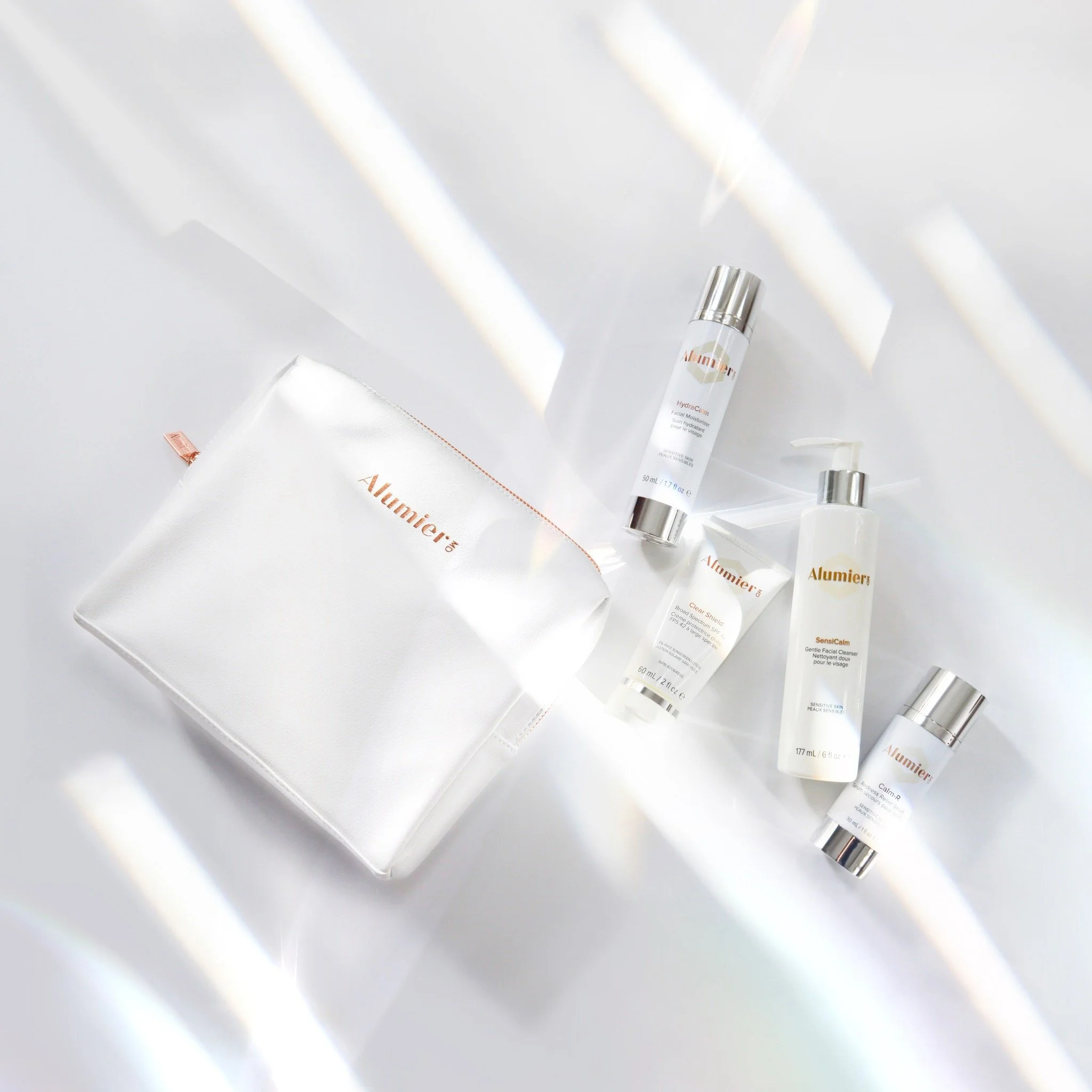What is Acne?
Acne is a skin condition that consists of comedones, papules, pustules, and cysts. Acne most commonly develops on areas of the body that contain a lot of sebaceous glands (oil) glands like the face, neck, chest, back and shoulders. Acne usually begins (and is most common) in puberty, but many adults also develop the condition.
Non inflammatory acne
Blackheads and whiteheads (aka open and closed comedones) occur when a plug made up of sebum and dead skin cells can be seen inside a follicle (pore), but does not cause any inflammation or redness.
Blackheads
If the plug enlarges and stretches the pore, it is referred to as a blackhead. Blackheads aren't trapped dirt. Rather, the dark colour is a build-up of melanin and oxidized oil.
Whiteheads
When a thin cover of skin traps the plug, it prevents the oil from oxidizing. This keeps it white and creates-a whitehead.
Inflammatory acne
When follicles are blocked by sebum and skin cells, the follicular wall is under pressure. If the pressure is great enough, then the follicle wall will break and the contents will spread into the surrounding skin.
When your immune system responds to this bacteria and sebum, inflammatory acne occurs. The degree of inflammation determines the size and redness of an acne lesion.
Papules
Pink or red bumps without a white or yellow centre.
Pustules
Red bumps with a white or yellow centre of pus. Pustules are formed when the plug inside a pore traps oil and bacteria, which draws white blood cells to the area to fight infection. Pus is made up of dead white blood cells.
Cysts and nodules
Larger (and often painful) acne lesions that extend into the deeper skin layers. Cysts and nodules can last for months, destroy the follicle and lead to permanent scars. Individuals with this type of acne should see a dermatologist for treatment.
A dermatologist may rank by severity.
• Grade 1 (mild): Mostly whiteheads and blackheads, with a few papules and pustules.
• Grade 2 (moderate or pustular acne): Multiple papules and pustules, mostly on your face.
• Grade 3 (moderately severe or nodulocystic acne): Numerous papules and pustules, along with occasionally inflamed nodules.
Your back and chest may also be affected.
• Grade 4 (severe nodulocystic acne): Numerous large, painful and inflamed pustules and nodules.
Hormones and Acne
Acne is largely a hormonal condition that’s driven by androgen hormones (testosterone). This typically becomes active during teenage and young adult years. You might also notice acne forming around the time of your period as a result of hormone activity. Sensitivity to this hormone — combined with surface bacteria on your skin and substances released from your body’s glands — can result in acne.
Acne is caused by three major factors:
Blockage of hair follicles (pores), where sebum (oil) is produced, by dead skin cells
Overproduction of sebum
Proliferation of P. acnes bacteria and consequent inflammation
Here are my skin tips.
Keep your skin clean. Gently wash your face up to twice daily and after sweating. Choose a gentle, non-abrasive cleanser. ...
Use a clean freshly laundered flannel daily.
Choose the right skin care.
Shampoo regularly.
Stick to your treatment.
Keep your hands off.
Have a fresh pillow case regularly.
Ensure makeup brushes are cleaned regularly.
Don’t shower more than once per day.
Drink lots of water.
Always remove makeup before bed time.
Try make up free or mineral based makeup.
Choose fragrance free products.
Get a skin consultation and get products recommended for your individual skin type.
Don’t overstimulate with exfoliators, use something gentle.
Don’t use harsh products that might strip the skin, this will trick the skin into thinking it’s not producing enough oil and will produce more oil.
Avoid excessive sugar, desserts and sodas.
Healthy diet, leafy greens and a balanced diet with fruits and vegetables that contain vitamin C and beta-carotene can be helpful because these nutrients have an anti-inflammatory effect. Also, some studies have shown that the consumption of certain dairy products could be associated with acne.
Exercise in moderation, it can lead to better sleep and help reduce stress levels.
Try to get plenty of sleep, if you are sleeping better you have decreased cortisol. Cortisol impacts the insulin and all the hormonal cascades that follow.
Treatments available at Beauty with Sarah:
LED light therapy
Alumier MD skin treatments
IPL light therapy
Skin consultation
(£50 redeemable on the Alumier skincare products)
CALL THE SALON TO BOOK YOUR SKIN CONSULTATION ON 01706 210111.
Supporting information about Acne can be found here:
https://www.nhs.uk/conditions/acne/




